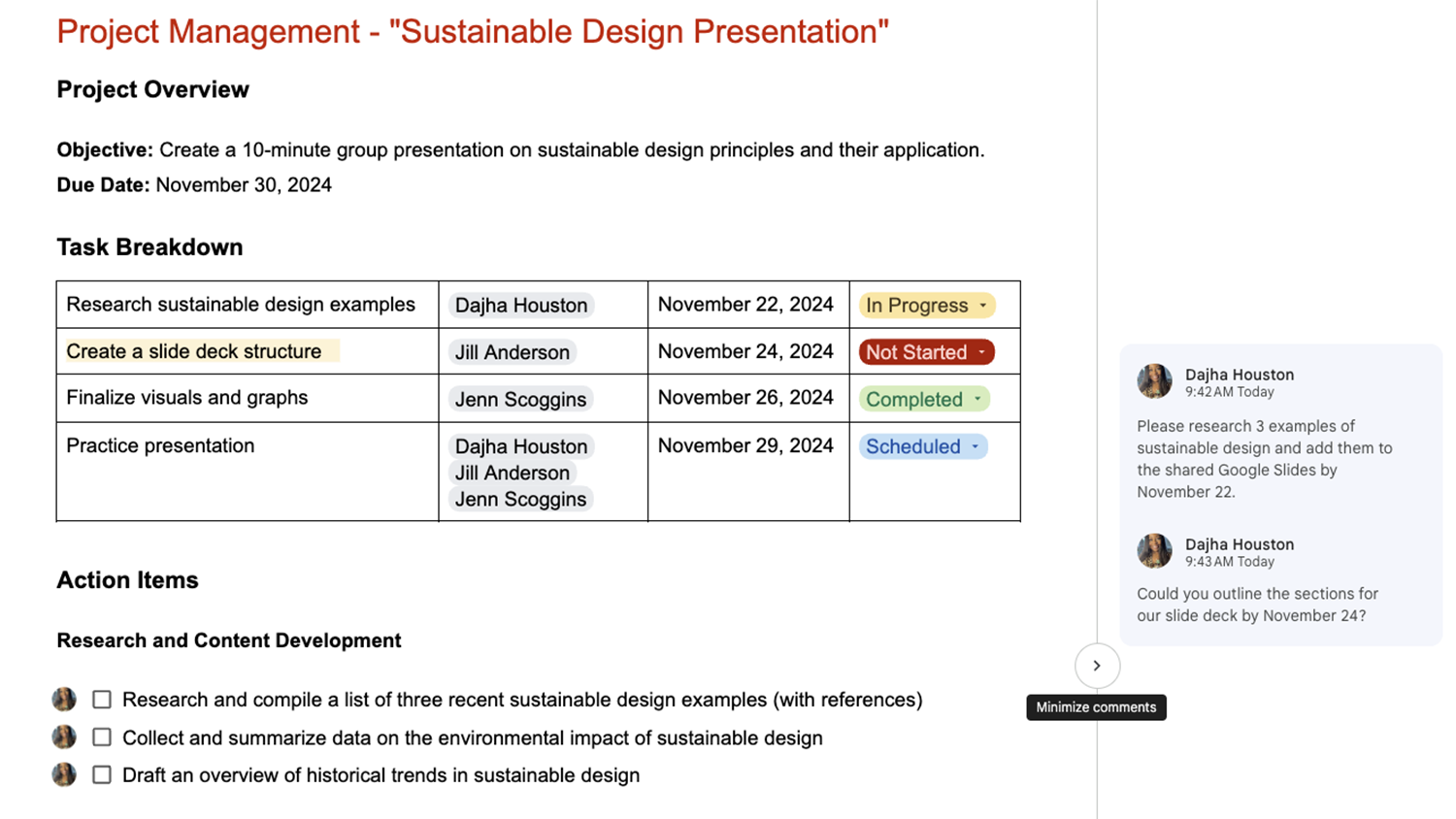Highlights from the November Moodle Moot
DELTA’s Scott Watkins and Marty Dulberg attended the 2013 Moodle Moot conference in New Orleans, on Nov. 5 and 6. They learned about the future direction of Moodle, heard about the innovative uses of Moodle on other campuses and brought home some great ideas for future features in our own Moodle. Here are some of the highlights from the conference.
New Features in Moodle 2.6
The conference’s keynote speaker was Martin Dougiamas, the founder and leader of Moodle.org. He gave an overview of the direction Moodle is taking, including a preview of features coming in Moodle 2.6, which was released Nov. 18, 2013. (We are planning to upgrade to Moodle 2.6 in March 2014, then to Moodle 2.8 in March 2015. We’re currently using Moodle 2.3.)
- Updated Course and Category Management screens (relevant more to admins than users)
- Responsive interface in which content adjusts to screen size (we’re testing this with our themes!)
- Refinements to drag-and-drop file upload (such as progress bars, etc.)
- Editing functions moved to an Edit menu next to each item (no more editing icons next to course items), which is designed to work easily on touch interfaces
- Updated skin for TinyMCE editor, whereby default all buttons except the top row of editor buttons are hidden
- Instructors’ ability to accept PDFs, annotate and mark them up, and return annotated PDFs to students; this includes functions such as drawing and highlighting, and makes tablet viewing easier (uses Ghost Script to generate annotated PDFs).This feature might make it more common to require students to submit in PDF format.
- New Single Activity Format course format option, which , allows the use of an Activity for the entire course
- Mobile Notifications that send Moodle alerts to mobile phones, aimed at improving student-to-teacher and teacher-to-student feedback
- Smarter caching with cluster support (speeds up performance)
Preview of Moodle 2.6
Beginning for summer 2014 courses:
- Logging and better analytics that make more events available to logs and to external plugins (so Events can trigger other Events, etc.)
- Outcomes 2 (MoodleRooms)
- Forum improvements (MoodleRooms) including: ability to subscribe to individual discussions, improved navigation, in-line reply, anonymous forums, forum grading and e-mail replies to forum
Future Moodle Developments
Martin Dougiamus also discussed some of the Moodle research efforts currently underway, which center around a yearly international conference and a new Moodle.org website. These improvements come with the observation that future Moodle development must be research- and data-based (see research.moodle.net).
With Moodle data, we can examine questions that will help us inform the future design of Moodle, such as:
- How closely can collected data reflect actual learning?
- What activities are working well for learning? Which ones aren’t?
- What are ethical concerns (such as privacy) and how can we address them?
- How should we include textual analysis in our dataset?
- How can we know if a student needs assistance from a teacher? (so that we can notify a teacher to intervene and help?)
- How can we identify other situations when a teacher would want to intervene?
- What types of auto feedback (such as rank in the class, points, badges, etc.) are the best motivators for students?
- How can we best identify students at similar levels for auto-grouping?
We also learned that there will be new Moodle networking capabilities, using the available Learning Tools Interoperability (LTI) to replace Moodle-Net (M-Net) and allowing for communication across Moodle servers. Also available is a new “Moodle Generator” that creates a fake Moodle site for testing.
Mobile Devices
One of the big themes at this year’s Moot focused on developing solutions to use Moodle on mobile devices. Several universities discussed their development efforts, which ran almost evenly between apps for specific phone OSs and responsive designs (in which the display changes based on screen width). Interestingly, no one seemed to have a good idea as to what students are actually doing with their smart phones or tablets, such as what sorts of tasks they’re trying to accomplish in Moodle with their mobile devices. Clearly, more work needs to be done in this area.
Other Developments
Outcomes are changing dramatically in the Moodle update, which may initially be confusing and difficult to master. The new outcomes will not be graded or scaled, and Legacy Outcomes will be retired. Admins must add all outcomes to the system for end-users (there are three formats that can be imported), which allow a user to select one of the global outcomes to apply to an activity, quiz question, etc. If a user wants to change outcomes, the links to associated resources will be broken and must be re-created manually (which makes sense, as the user would be deleting outcomes and then putting in new ones with the same name).
This session was more difficult to follow, and we left with the sense that the creation, maintenance and user understanding of how to apply these changes will make for a complicated environment. More information can be found at manuals.moodlerooms.com
We also want faculty to buy in to making good choices about how they manage their media content. This requires several approaches:
- Training in creating and optimizing image and video files
- Information on available tools
- A checklist for planning new content
- Assistance in updating (including assessing for ADA compliance) existing media content
Conference Session Highlights
Marty gave a presentation on LMS Governance, which 22 people attended. The main points of discussion were the committee structure in place, the need for transparency, and translating between different constituencies and soliciting a heterogeneous viewpoint from campus constituencies.
Scott attended an interesting session about Adaptive Learning led by Michael Penney, CTO of the test prep organization, PrepWorks. This organization apparently uses activity completion and selective release to good effect, and Penney defined a few specific terms and approaches:
- “Withheld delivery” gives different segments of the content to students with different levels of mastery
- “Track-based delivery” gives different content levels
- “True adaptive learning” gives different course segments at different levels (more granular)
(This session was all in the context of college readiness preparation, which differs from regular courses of study such as students’ ability to keep re-taking the SAT to get a higher score.)
Additionally, the University of Minnesota featured the interesting idea of a “Kiosk”–a block added to each course that creates a course list from multiple servers. This approach might be a useful for us as we consider how to better create a navigation block across our academic and project servers, giving users a complete list of courses they have access to rather than just the ones on the current server.
Louisiana State University demonstrated a grade calculator they built into Moodle that helps students project a final grade for the course, based upon their current grades and a grading rubric entered into Moodle. This feature is apparently wildly popular with both students and faculty, since students can use it to figure out what they need to earn on the final to get an A in the class. The grade calculator will be a nice feature for us to consider adding.
Written by Scott Watkins, with some additions by Marty Dulberg


